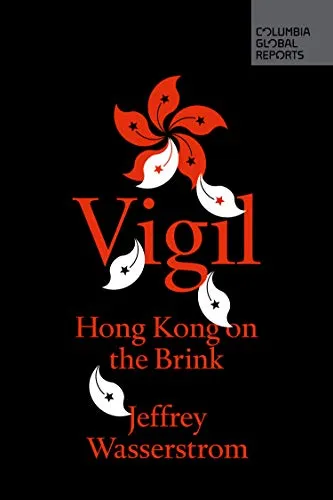
It was one thing, after all, “to know, intellectually, that the Communist Party is not going to give in right away. But it’s another thing, especially when you are eighteen, nineteen, twenty years old,” and have just gotten swept up in “the first big pro-democracy thing you’ve participated in in your life, to be out there on the streets for seventy-nine days, and kind of give it your all, and come away with nothing.”
“We will no longer be Hong Kong people, but Greater Bay Area people,” Jonathan Choi Koon-shum, chairman of the local Chinese General Chamber of Commerce, told a journalist in a 2018 interview. He saw this as having the potential to be a very positive development, and he encouraged local residents to “focus on integration rather than on the interests of Hong Kong.” Integration is, for some, such as Choi, the stuff that dreams are made of, while it is a source of nightmares for others.
The epic David-and-Goliath struggle currently underway in Hong Kong which is the focus of this book, can be seen in part as rooted in contrasting views of the meaning and significance of borders and what happens as they blur or disappear. There are those who welcome the fading of distinctions between Hong Kong and mainland cities—or at least do not worry about them much. This can be because they view the Party as a benevolent organization, or for pragmatic reasons, as is the case with some people who work in Hong Kong but live in Shenzhen, where rents are not as astronomically high. On the other side in the struggle are those who treasure the many aspects of local life, including a more vibrant civil society and courts that operate with more independence from other government bodies, that make Hong Kong distinctive—and freer.
[Chris Patten] told me that since his governorship had ended, he had been surprised many times by events in Hong Kong. I asked him to give me his reaction to a proposition that had formed in my mind: Historians of the future may well claim it was surprising both how light a touch the Chinese Communist Party used when dealing with Hong Kong in the immediate wake of 1997, and by how quickly Beijing tightened the screws on the city from the mid-2010s on. He pondered this for a moment, then nodded in assent. It was then that Lord Patten made a comment that has stuck with me more than anything that anyone else I have interviewed for this book has said: “When the snow starts melting, it melts quickly.”
It is difficult to overstate how strange and enigmatic the Basic Law of Hong Kong is. By stipulating that elections will be “specified in the light of the actual situation,” it is as if Beijing has dared its small territory to the south to constantly and neverendingly fight for every inch of political self-determination. One thinks of a parent (Hong Kongers derisively call Beijing leaders their “grandfathers”) who drives a child crazy by promising candy that he never delivers. And that’s exactly what has occurred ever since the Handover. Every political battle has had to do with Beijing gaslighting on universal suffrage, even if the massive protests in 2003 and 2012 have been ostensibly about something else. Democracy is and always has been the dominant issue in Hong Kong politics.
An older generation of Hong Kongers had seen prosperity thanks to hitching their ride to China’s booming economy, but around this time the number of Hong Kong companies operating in China began to drop, as the territory was losing its role as the gateway to the mainland. Baby boomers believed that the way to restore Hong Kong’s centrality was to follow China’s lead, but to a younger generation that never fully benefited from Hong Kong’s postwar miracle, that was not the answer. Youth unemployment rose to an all-time high of 10.4 percent in August 2003. Average wages were flat for a decade after the Handover. Young Hong Kongers saw their future as increasingly grim.
Functional constituency “elections” are a farce, since often one candidate has basically been given the seat via an under-the-table deal. This system was and still is a colonial one. It was created by the last masters to limit democracy and adopted and adapted happily by the current ones.
The use of tear gas on September 28 was especially consequential. Images of groups of people using umbrellas to block its effect and a photograph of a lone man holding an umbrella while clouds of gas swirled around him became iconic shots seen around the world.
Another divide within the new cohort that Law was a part of had to do with how they took the standard oath of office. They were all eager to signal their outsider status by taking liberties with the oathtaking. Some opted for subtle variations to the protocol, such as slowing their speech down a bit, or making a statement about needing to preserve Hong Kong liberties before or after saying the required words, as a way to show that they had not completely left their roles as protesters behind. [Nathan] Law took this path. Others, though, chose more confrontational and dramatic forms of political theater.
“The Frogs of Hong Kong have all been in one big pot and the water temperature has gradually been rising. Early on, some Frogs jumped out of the pot; others have struggled to cope with the increasing heat; and then there are those Frogs who have gone mad in their death throes,” [Canny] Leung wrote. “We’ve all been in that pot of hot water for twenty-two years. Now and then, they suddenly turn up the heat to see how the Frogs will react. If we don’t struggle too violently they know they can apply more heat next time around. That’s why it’s been getting hotter and hotter and the heat has been turned up with ever greater frequency.”